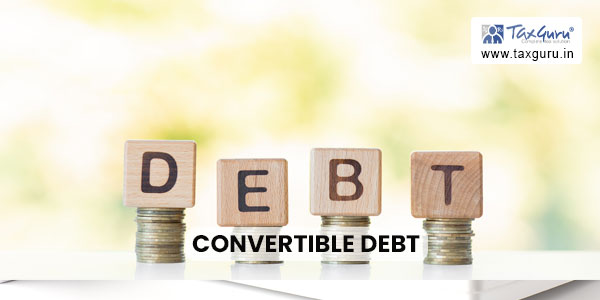“Discover the features, advantages, and risks of convertible debt in our user-friendly guide. Learn about conversion options, interest rates, and its impact on dilution and returns.”
Understand the features, advantages, and disadvantages of convertible debt with our user-friendly guide. Learn about conversion options, fixed terms, and the impact on dilution and returns.
Convertible debt is a type of financial instrument that combines the features of debt and equity. It is a debt instrument that can be converted into equity at a later stage. In this article, we will provide a user-friendly guide on convertible debt, including its features, advantages, and disadvantages.
Page Contents
What is Convertible Debt?
Convertible debt is a type of debt that can be converted into equity at a later stage. It is a hybrid financial instrument that combines the features of debt and equity. Convertible debt is issued in the form of bonds or notes, and it has a fixed maturity date and a fixed interest rate. The main feature of convertible debt is the conversion option, which allows the holder of the debt to convert it into equity at a pre-determined price.
Features of Convertible Debt
1. Conversion Option
The main feature of convertible debt is the conversion option, which allows the holder of the debt to convert it into equity at a later stage. The conversion option is typically exercisable by the holder of the debt, and it is subject to certain conditions such as a minimum holding period or a minimum conversion price.

2. Fixed Maturity Date and Interest Rate
Convertible debt has a fixed maturity date and a fixed interest rate. The maturity date is the date on which the debt must be repaid, and the interest rate is the rate at which the issuer pays interest to the holder of the debt.
3. Priority in Liquidation
In the event of liquidation, convertible debt holders have priority over equity holders. This means that if the company is liquidated, the convertible debt holders will be paid before the equity holders.
Advantages of Convertible Debt
1. Lower Interest Rates
Convertible debt typically has lower interest rates than other forms of debt, such as bank loans or bonds. This is because convertible debt has the potential to convert into equity, which provides the issuer with an opportunity to raise equity at a later stage.
2. Flexibility
Convertible debt provides flexibility to the issuer and the investor. The issuer has the option to convert the debt into equity at a later stage, which allows them to raise equity without diluting their existing shareholders. The investor has the option to convert the debt into equity, which provides them with an opportunity to benefit from any potential upside in the company.

3. Tax Benefits
Convertible debt provides tax benefits to both the issuer and the investor. The interest paid on convertible debt is tax-deductible for the issuer, which reduces their tax liability. For the investor, the conversion of debt into equity is not a taxable event, which means that they do not have to pay tax on the conversion.
Disadvantages of Convertible Debt
1. Dilution
Convertible debt can result in dilution of the existing shareholders. This is because the conversion of debt into equity results in the issuance of new shares, which dilutes the ownership of the existing shareholders.
2. Complexity
Convertible debt is a complex financial instrument that requires a high degree of expertise to understand. This complexity can make it difficult for some investors to evaluate the risks and benefits of investing in convertible debt.
3. Lower Returns
Convertible debt typically has lower returns than equity investments. This is because the fixed interest rate on convertible debt is lower than the potential returns from equity investments.
Conclusion
Convertible debt is a hybrid financial instrument that combines the features of debt and equity. It has a conversion option that allows the holder of the debt to convert it into equity at a later stage. Convertible debt has advantages such as lower interest rates, flexibility, and tax benefits, but it also has disadvantages such as dilution, complexity, and lower returns. Investors should carefully evaluate the risks and benefits of investing in convertible debt before making any investment decisions.





